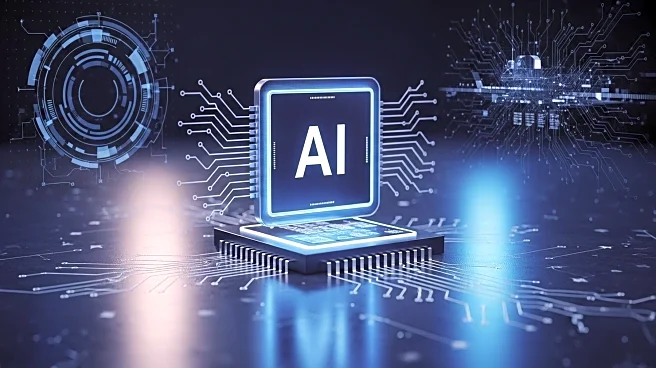What's Happening?
AI company Anthropic has agreed to settle a lawsuit brought by a group of authors for $1.5 billion. The lawsuit alleged that Anthropic used pirated copies of books to train its AI chatbot, Claude. The settlement, which covers approximately 500,000 works, could result in a payout of around $3,000 per work if approved by a judge. This case is considered the largest copyright recovery in the AI era, according to Justin Nelson, a lawyer for the authors. Anthropic's deputy general counsel, Aparna Sridhar, stated that the court found Anthropic's approach to training AI models constitutes fair use. The settlement aims to resolve the plaintiffs' remaining legacy claims.
Why It's Important?
The settlement marks a significant moment in the ongoing legal battles between AI companies and content creators. It highlights the growing concerns over copyright infringement in the AI industry, where companies use existing works to train models. The outcome of this case could set a precedent for future lawsuits, impacting how AI companies approach the use of copyrighted material. Artists, publishers, and creatives stand to gain from this settlement, as it may encourage more stringent protections for their works. Conversely, AI companies may face increased scrutiny and legal challenges, potentially affecting their operational strategies and innovation.
What's Next?
If the settlement is approved, it could lead to more lawsuits from authors and creators against AI companies, seeking compensation for unauthorized use of their works. AI companies may need to reassess their training methods and consider licensing agreements to avoid future legal issues. The case could also prompt legislative discussions on copyright laws and AI, potentially leading to new regulations that balance innovation with intellectual property rights. Stakeholders in the AI industry, including developers and legal experts, will likely monitor the case closely to understand its implications for AI development and copyright law.
Beyond the Headlines
The lawsuit raises ethical questions about the use of copyrighted material in AI training. It challenges the notion of fair use in the digital age, where AI technologies rapidly evolve. The case could influence cultural perceptions of AI, as creators demand recognition and compensation for their contributions. Long-term, this development may drive changes in how AI companies engage with content creators, fostering collaborations that respect intellectual property rights while advancing technological innovation.









